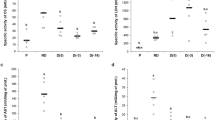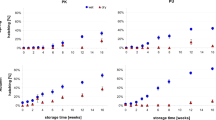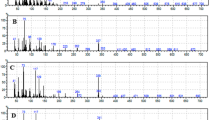Abstract
THE function of food reserves during diapause is often discussed, but there are very few reliable data. The mass hibernation of adult Semiadalia wndecimnotata (Schneider) (Coccinellidae) in accessible places allowed us to make analyses throughout the winter. Both sexes arrive at the winter quarters on warm, windless days from the end of July to the end of August, and leave from the end of April to the end of May, according to the temperature.
This is a preview of subscription content, access via your institution
Access options
Subscribe to this journal
Receive 51 print issues and online access
$199.00 per year
only $3.90 per issue
Buy this article
- Purchase on Springer Link
- Instant access to full article PDF
Prices may be subject to local taxes which are calculated during checkout
Similar content being viewed by others
References
Hodek, I., and Čerkasov, J., Acta Soc. Zool. Bohemoslov., 27, 298 (1963).
Hodek, I., Acta Soc. Ent. Čechoslov. (in the press).
S´lma, K., Biol. Bull., Woods Hole (in the press).
Author information
Authors and Affiliations
Rights and permissions
About this article
Cite this article
HODEK, I., ČERKASOV, J. Biochemical Changes in Semiadalia undecimnotata (Schneider) Adults during Diapause. Nature 205, 925–926 (1965). https://doi.org/10.1038/205925c0
Issue Date:
DOI: https://doi.org/10.1038/205925c0
Comments
By submitting a comment you agree to abide by our Terms and Community Guidelines. If you find something abusive or that does not comply with our terms or guidelines please flag it as inappropriate.



